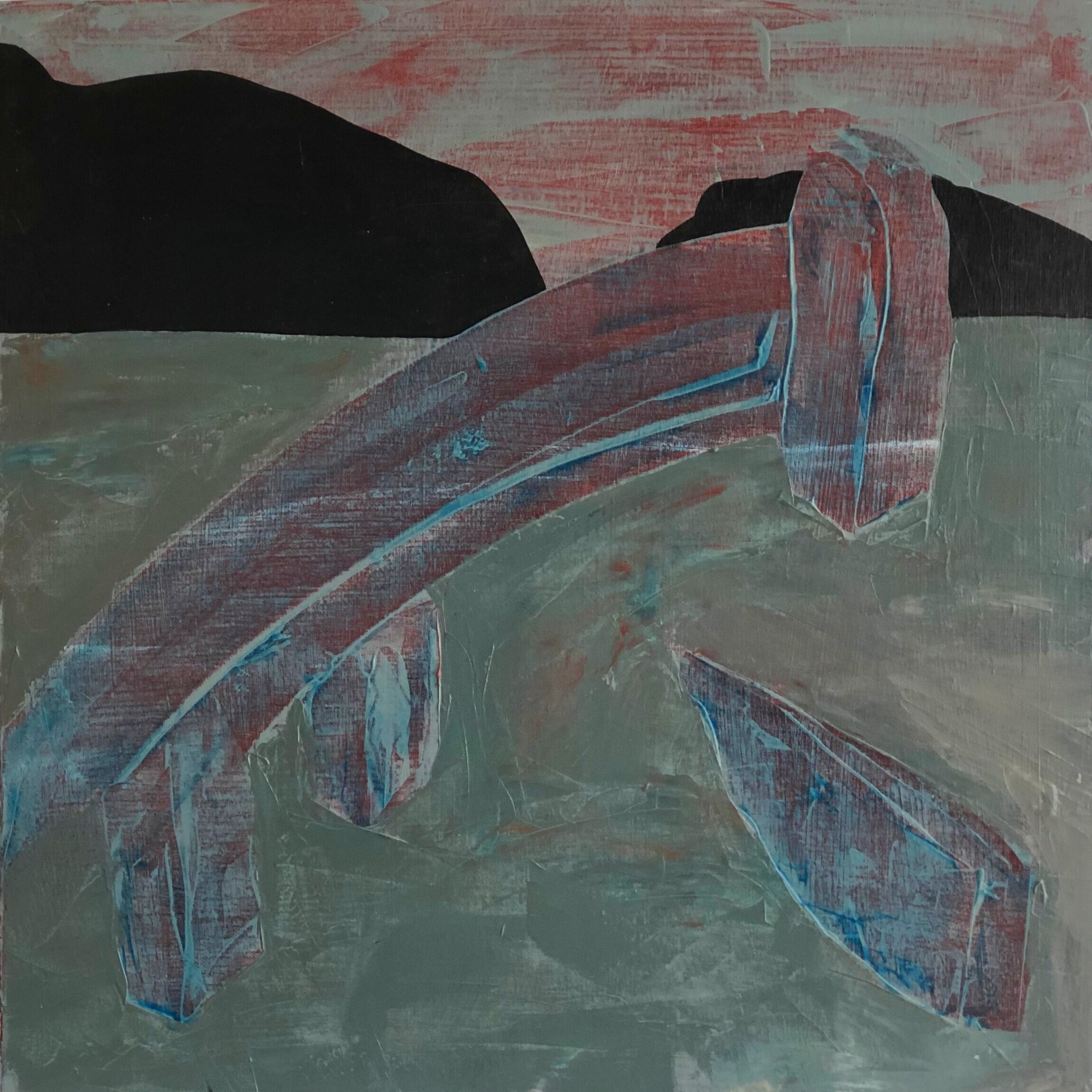Nocturnes, Prayerful Offerings for Times Dimmed by Affliction
Acrylic on Canvas, Bruce Ley, CD Cover, Nocturnes
Nocturnes, prayerful offerings for times when life is dimmed by affliction, Rev. Roger Hunter, 2013, Boarding Homes Ministries Music: Bruce Ley
The prayers found here are called Nocturnes. They, and the music that accompanies them, are designed to resonate with those dimmed times when the burdens of life drain much of the light away. These Nocturnes afford a time of stillness in the midst of the dark. The goal of these Nocturnes is to let life’s hard and dimmed moments be met in an honest union of God and art and highly treasured listener.
These prayers were written in response to a request. The request was this: can you develop prayers which a Christian might read when alone, at night, when life is very difficult?
And so, out of pastoral concern for people who experience harsh times, short prayers were created to fit with these darkened moments, and recorded with piano improvisation.
Life can be stern. We are fragile. Strong and hurtful forces are at work in this world, this is bad enough, but when the sun goes down these hurts can be magnified. Still worse, too often when people suffer a kind of darkness descends on them which is born of affliction.
Please note, these Nocturnes are not general prayers to be used at any time. They are specific to moments when hardship takes a serious toll. In fact, they will likely make little or no sense to someone who reads them straight through when the life is bright and joyful. These Nocturnes are prayers for times when, perhaps a diagnosis, or a broken heart, or troubled relations, weigh heavily on the heart. These prayers are not deigned to lift readers out of the shadows into joy, although they will remind us of how God delights in each one of us. They are prayers designed to remind us that there is a truth about us in the shadows. We will be the poorer if we run from it. But if we rest there, maybe by grace, we will understand ourselves better and taste the company of God.
In speaking of Whistler’s nocturnes (which were the inspiration for this style of prayer) Frances Spalding (Whistler Phaedon Press, 1979) points out that Whistler was “attracted to dusk and night because the absence of light caused forms to be simplified…” p. 18. Whistler himself spoke of how “the evening mist clothes the riverside in poetry.” p. 18. Such is the power of dusk and its new, more lyrical, more focused vision, less cluttered, more alive, in which Nocturnes “achieve their effect by omission.” P. 23
The hope is, for a short time only, to draw readers closer to God and self by paring back the language. The language in these prayers is simple. The prayers pull back images into simplified forms. The world around us has many colours and facets to explore, but not now. Now is the darkened moment. Maybe in these nocturnal, simplified expressions of prayer readers might see their lives more clearly, and be moved as the darkness speaks. As in a black and white print the angels and lines stand out more clearly. Perhaps the darkness might heighten awareness.
And so the prayers repeatedly invite the reader to be ‘in the moment’, to settle into ‘just this time now’, for ‘my God, we only have this time here and now’. The prayers go on to present images for darkness. Stay with these images. Claim them. And, importantly, use these prayers only as a model. Develop your own. Invent your own. Find your own words. Express your personal darkness in personal images that fit just your life.


